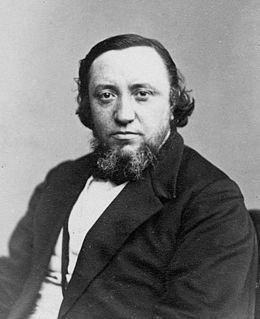A Quote by Herbert Marcuse
The spontaneous reproduction of superimposed needs by the individual does not establish autonomy; it only testifies to the efficacy of the control.
Quote Topics
Related Quotes
Free election of masters does not abolish the masters or the slaves. Free choice among a wide variety of goods and services does not signify freedom if these goods and services sustain social controls over a life of toil and fear – that is, if they sustain alienation. And the spontaneous reproduction of superimposed needs by the individual does not establish autonomy; it only testifies to the efficacy of the controls.
This whole society, up to now, has been very violent with the individual. It does not believe in the individual; it is against the individual. It tries in every possible way to destroy you for its own purposes. It needs clerks, it needs stationmasters, deputy-collectors, policemen, magistrates, it needs soldiers. It does not need human beings.
Whatever each individual woman is facing; only she knows her biggest challenge. However, if we add up the problems that affect the biggest numbers of women, then issues having to do with physical safety and reproduction are still the biggest. Female bodies are still the battleground, whether that means restricting freedom, birth control and safe abortion in order to turn them into factories, or abandoning female infants because females are less valuable for everything other than reproduction.
We face a conflict between civilisation and culture, which used to be on the same side. Civilisation means rational reflection, material wellbeing, individual autonomy and ironic self-doubt; culture means a form of life that is customary, collective, passionate, spontaneous, unreflective and irrational.
We face a conflict between civilisation and culture, which used to be on the same side. Civilisation means rational reflection, material wellbeing, individual autonomy and ironic self-doubt; culture means a form of life that is customary, collective, passionate, spontaneous, unreflective and arational.
The man who is thus outside the confines of every value-combination, and has become the exclusive representative of an individual value, is metaphysically an outcast, for his autonomy presupposes the resolution and disintegration of all system into its individual elements; such a man is liberated from values and from style, and can be influenced only by the irrational.
Both Faith and Terror are instruments for the elimination of individual self-respect. Terror crushes the autonomy of self-respect, where Faith obtains its more or less voluntary surrender. In both cases, the result of the elimination of individual autonomy is - automatism. Both Faith and Terror reduce the human entity to a formula that can be manipulated at will.
Traditional models of work only let us cross out the needs on the very bottom of the pyramid - basic sustenance. On the flipside, independent employment within the network of the new sharing economy addresses our needs for a sense of community and belonging, autonomy and respect, creativity and problem solving.
The acceptability of birth control has always depended on a morality that separates sex from reproduction. In the nineteenth century, when the birth control movement began, such a separation was widely considered immoral. The eventual widespread public acceptance of birth control required a major reorientation of sexual values.
In no sense other than an utterly trivial one is reproduction the inverse of chemical disintegration. It is a misunderstanding of genetics to suppose that reproduction is only 'intended' to make facsimiles, for parasexual processes of genetical exchange are to be found in the simplest living things.







































